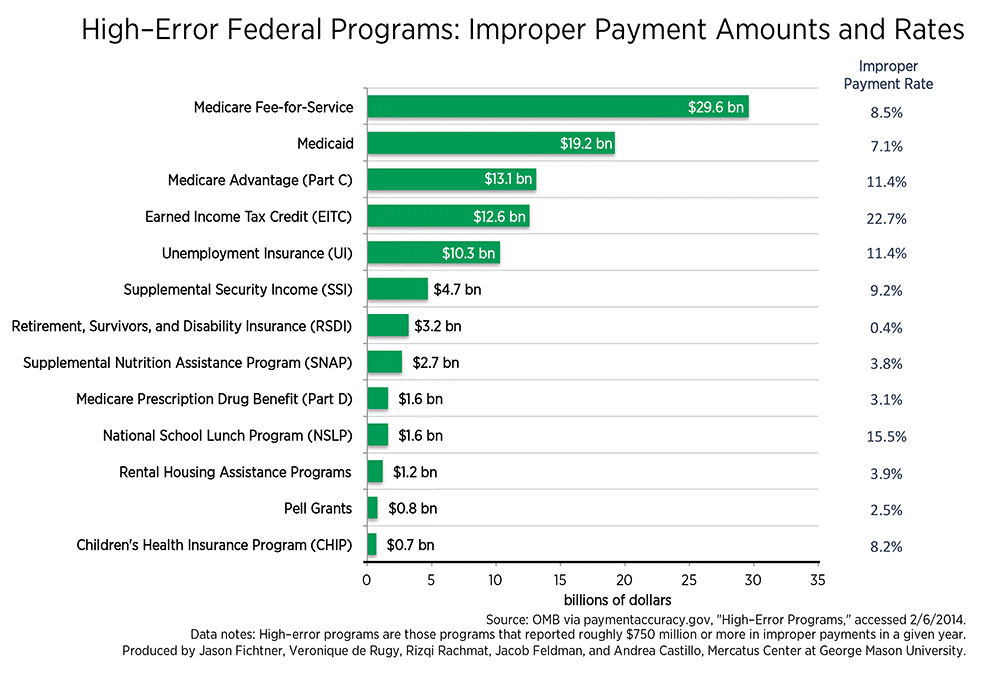Despite efforts by Congress and the Obama administration, the federal government is still hemorrhaging tens of billions dollars every year on duplicative programs.
The Government Accountability Office sixth annual report detailing “fragmentation, overlap and duplication” in the federal government pinpoints 37 areas where a host of agencies offered 92 fresh suggestions on how they could generate billions of dollars in savings over the next five years.
Related: Audit Uncovers $124.7 B of Overpayments and Fraud in Medicare and Medicaid
Between 2011 and 2015, GAO made 544 cost-saving recommendations to Congress and the executive branch. Forty-one percent of those have been implemented, which has saved taxpayers approximately $56 billion; another $69 billion could be saved in the next decade.
The Internal Revenue Service and the Defense and Health and Human Services departments are the biggest offenders identified in the new study.

For instance, the Pentagon could save “tens of millions” annually if the agency would centralize and enforce the existing acquisition policies in terms of purchasing “commercial satellite communications (SATCOM) services.”
Related: Why Social Security’s Crackdown on Disability Fraud Is Coming Up Short
As for the IRS, the agency could potentially collect billions in tax underpayments and help close the annual $385 billion “tax gap” if it better coordinated its nine public referral programs, efforts that allow whistleblowers to report scofflaws. The IRS currently doesn’t have any way for those nine disparate programs to communicate with one another and to make matters worse, the efforts “involve largely manual processes.”
“Until IRS takes these actions, it may be missing opportunities to assist the public, collect billions in uncollected taxes owed, and leverage resources to streamline processes, which could help it to better coordinate and identify possible efficiencies, as well as better manage fragmentation and overlap,” according to GAO.
Meanwhile, there is also redundant federal spending on health insurance coverage for individuals transitioning between Medicaid and federally subsidized state exchanges set up via Obamacare.
Related: Democratic Senators Demand Investigation of $3 Billion in Wasted Bio-Drugs
Testifying about the report on Wednesday, U.S. Comptroller General Gene Dodaro told House lawmakers that the government could save more money through a host of actions, such as: eliminating overpayments by the Social Security Administration; granting federal agencies use of excess Pentagon facilities and ammunition “so we don’t have to buy it twice;” and raising fees, some of which have not been increased in 20 years, to deal with things like deferred maintenance at national parks.
Members of the House Oversight and Government Reform Committee hailed the report and the work of the GAO, but nonetheless used the hearing to gripe about the glacial pace of implementing cost-saving measures.
“Why do we need to come back year after year to discuss the same actions?” asked chair Jason Chaffetz (R-UT). “Taking action at just three agencies -- the Department of Defense, the Department of Health and Human Services, and the Internal Revenue Service -- if we did just those three, we would save literally billions upon billions of dollars.”






